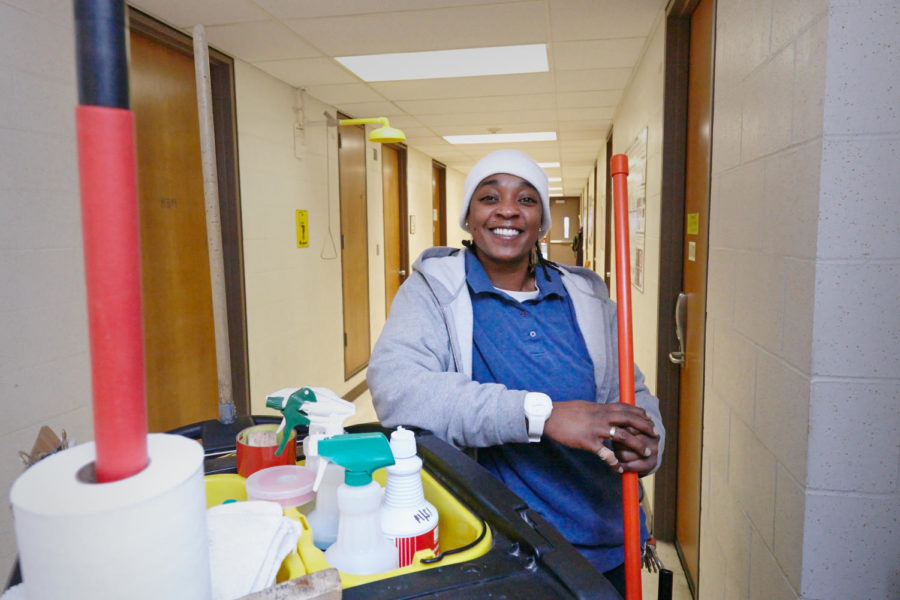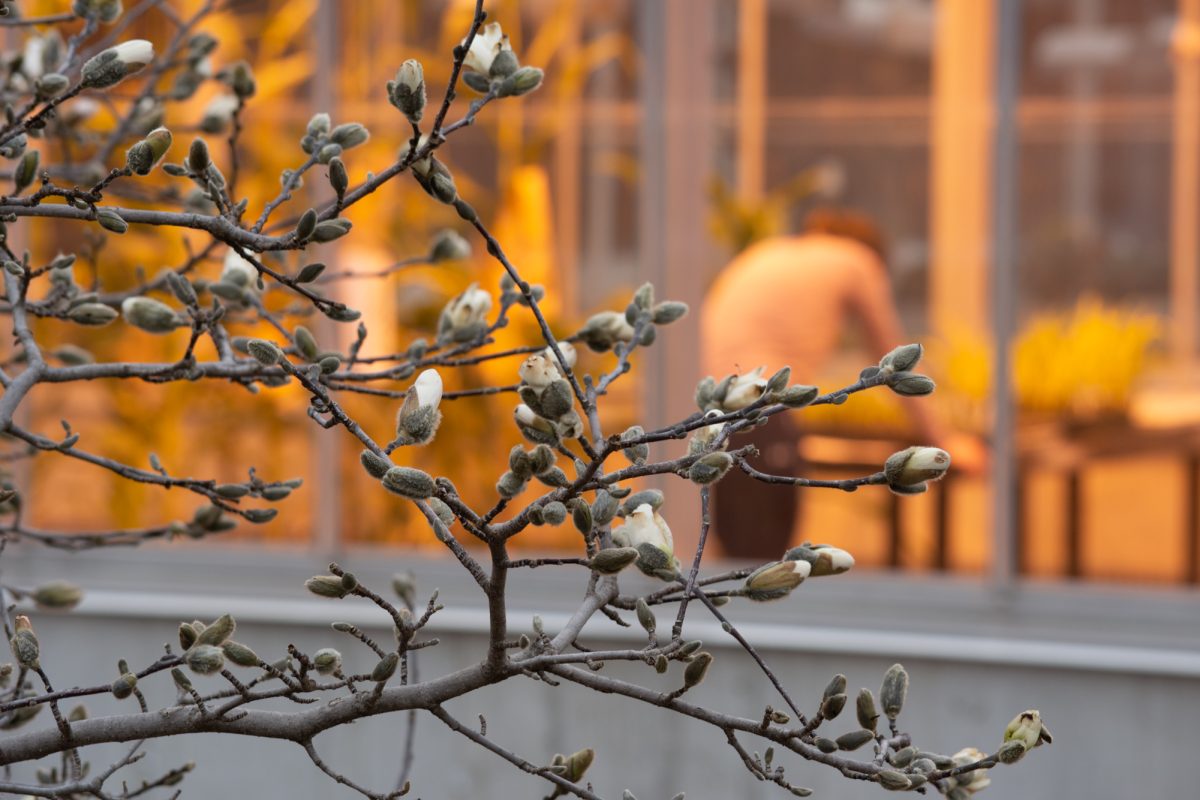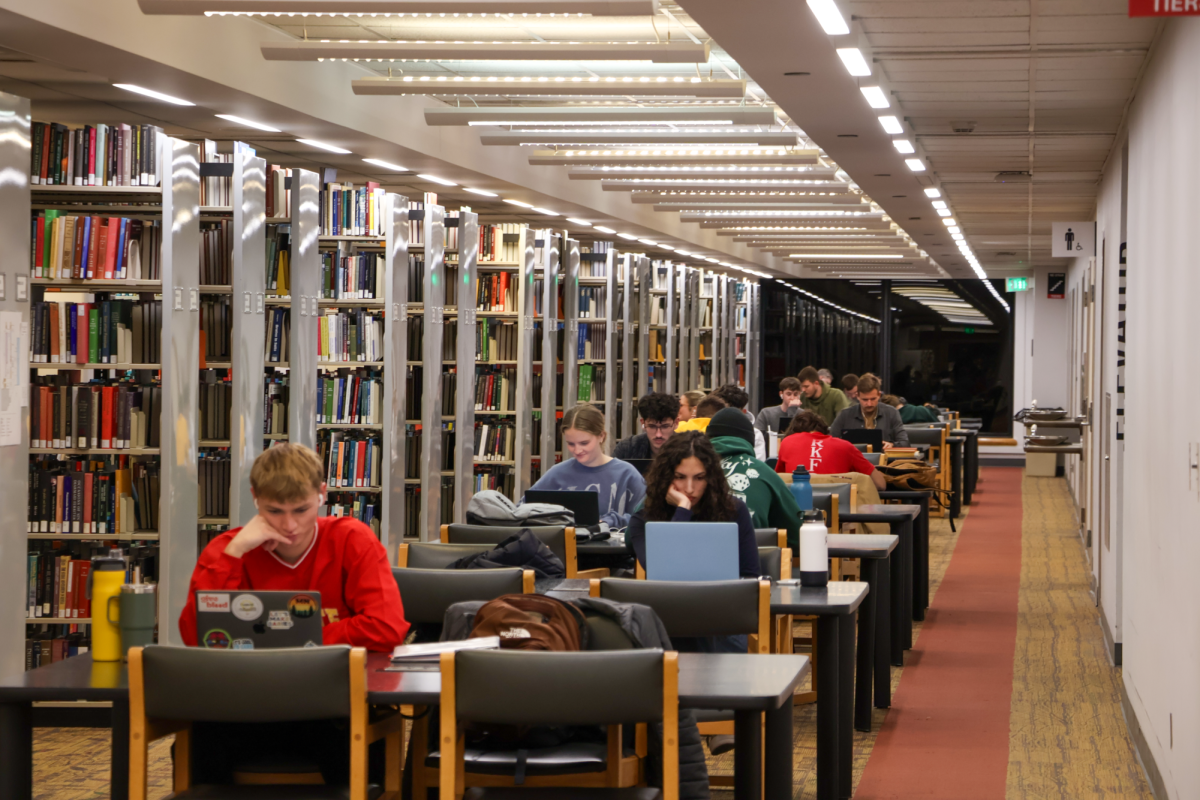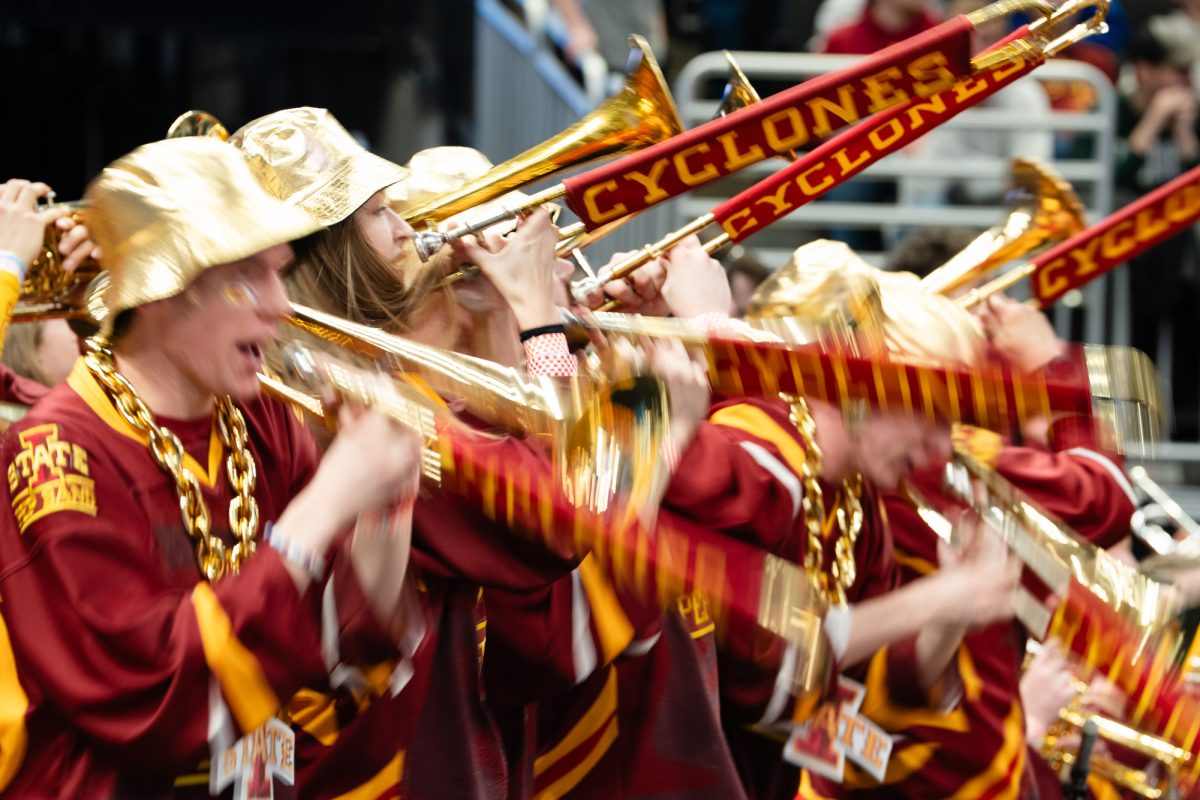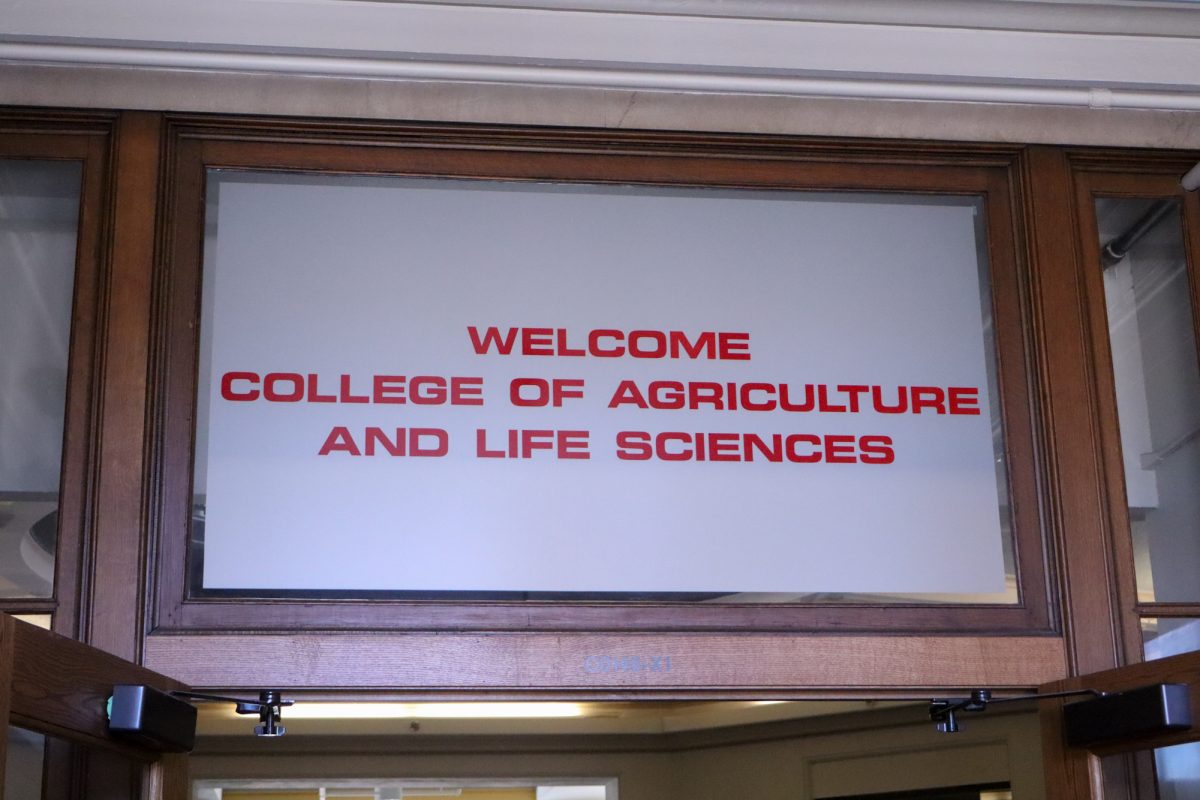Custodians work behind the scenes to keep ISU campus beautiful
Janitors
December 15, 2014
While the student body is still asleep, Mook Bascomb wakes in the early hours of the morning to keep the Iowa State campus beautiful.
Iowa State’s campus has been called one of the most beautiful in the Midwest, and one of the top 25 most beautiful in the book “The Campus as a Work of Art.”
It takes work to maintain that beauty, and those who accomplish it typically work behind the scenes.
Bascomb is one of those at Iowa State whose work starts at 4 a.m. every weekday. As a custodian, it is her job to prepare the buildings on campus for the students and faculty who use it.
Bascomb and other custodial staff members can be seen throughout campus keeping every building at Iowa State clean and healthy for everyone.
“To do my job, it really takes that open-mindness and that ability to change,” Bascomb said.
Each custodian is assigned to one or more building to service daily. More than one custodial staff often maintain the same building, depending on its size.
Bascomb has been working for the university for four years and maintains the Science II building on a daily basis.
So what does it take to keep campus clean and healthy?
The duties of custodial members mostly consist of overall maintenance and surveillance of the buildings they service. Maintenance includes cleaning restrooms, hallways, stairways, offices and classrooms, as well as changing lights and taking out garbage.
They also have what they call customer service, in which they tidy student and professor office space in the buildings they maintain.
Custodial staff can also “float” to other buildings to cover absent custodian duties or in cases of emergencies.
Jeff Hedlund, a member of custodial services, said the custodial staff is given up-to-date equipment to make their jobs easier.
Hedlund maintains several buildings on campus, including the campanile.
“That’s a very unique thing,” Hedlund said. “Once a week, I clean the room at the top where the bells are played. I make sure it’s tidy and I sweep the stairs.”
Hedlund can most likely be found in the Student Services Building, where he has worked for four years.
Members of the custodial staff work in teams of 11 people to accomplish tasks and to solve problems that may arise. There are 14 teams on campus.
Joyce Bricker is a custodian on team four who works in Snedecor Hall. She said she believes the current system is a good one.
Bricker said the team system allowed custodial staff more freedom and flexibility with their day-to-day schedules.
“It does work,” Bricker said. “In the old days we had a supervisor, but sometimes that was a good thing or it was a bad thing.”
Hedlund said this aspect of the job lets the custodians have more ownership of their jobs and the work they have to do. He said that it can be a frustrating part of the job.
“I think it’s a great thing we are in teams, but it can be a challenge,” Hedlund said. “Not everyone is alike and it can create a problem. We don’t butt heads necessarily, though.”
Hedlund said despite this, his team still works well together.
The team system was one major change that was put in place several years ago. Throughout their time as custodians, they often experience change in the way their job is done.
Hedlund has worked for Iowa State for 30 years, and has seen plenty of change throughout his time as a custodian.
“Going green” is one of the major changes that has been pushed forward by the facilities department for years. They are working toward this goal by using green paper towels in the bathrooms and not using wax on the floors of buildings.
Bricker said Morrill Hall is one building on campus that is 100 percent green.
“It hasn’t made my job any more difficult at all,” Boscomv said. “It’s even easier in some areas.”
Custodians have also changed the chemical cleaners they are using to be more environmental and health conscious. This includes eliminating bleaches and other harmful substances.
Bricker said that most of the custodians have been here for decades.
“The least senior person on our team has been here five or six years,” Bricker said. “We have several people here who remember the first computer on campus.”
The custodians on campus are not only dedicated to their jobs but are also involved in Iowa State activities.
Bricker said she tries to be active on ISU campus and participates in activities every year, such as the Polar Plunge and the Chili Cook-off.
Bricker has been working at Iowa State for 35 years and has no plans to retire anytime soon. She said her dedication to the job is due to the fact that she was born on ISU’s campus.
“My father was a student,” Bricker said. “World War II vets were given housing here after the war and my parents lived there. I’ve spent my whole life here.”
Bricker’s parents lived on Iowa State’s campus, while her father attained his bachelor’s degree and she has been a dedicated Cyclone ever since.
The custodians often have the chance to develop strong relationships with the professors and faculty they see in their buildings every day.
“You hang around long enough, you get to know the people,” Hedlund said.
Bascomb said that she has developed relationships with the students in Science II as well.
“The upper grad students are here almost every day,” Bascomb said. “They even sleep here. So we do know each other nicely.”
Bricker said she has received cards, flowers and signs from faculty and students in Snedecor Hall, where she works on a daily basis.
Bricker said she has greatly enjoyed her time working at Iowa State.
“This has been a great place to work,” Bricker said. “I’ve met some incredible people while I’ve worked here.”
Bascomb said that despite the fact she goes into work at four in the morning, she enjoys her job.
“I really do enjoy it,” Bascomb said. “It’s always something new. It’s never stagnant and it always changes up.”
Hedlund said that he doesn’t expect major recognition from anyone but does appreciate the thanks he receives. He said the best thanks he ever receives are the ones he gets from students throughout the years.
Bascomb said she never feels underappreciated.
“Here, in this building, I get told often that they appreciate the work I’m doing,” Bascomb said. “That’s very nice and I hear it enough. I know that the work I do is important and I appreciate that.”


